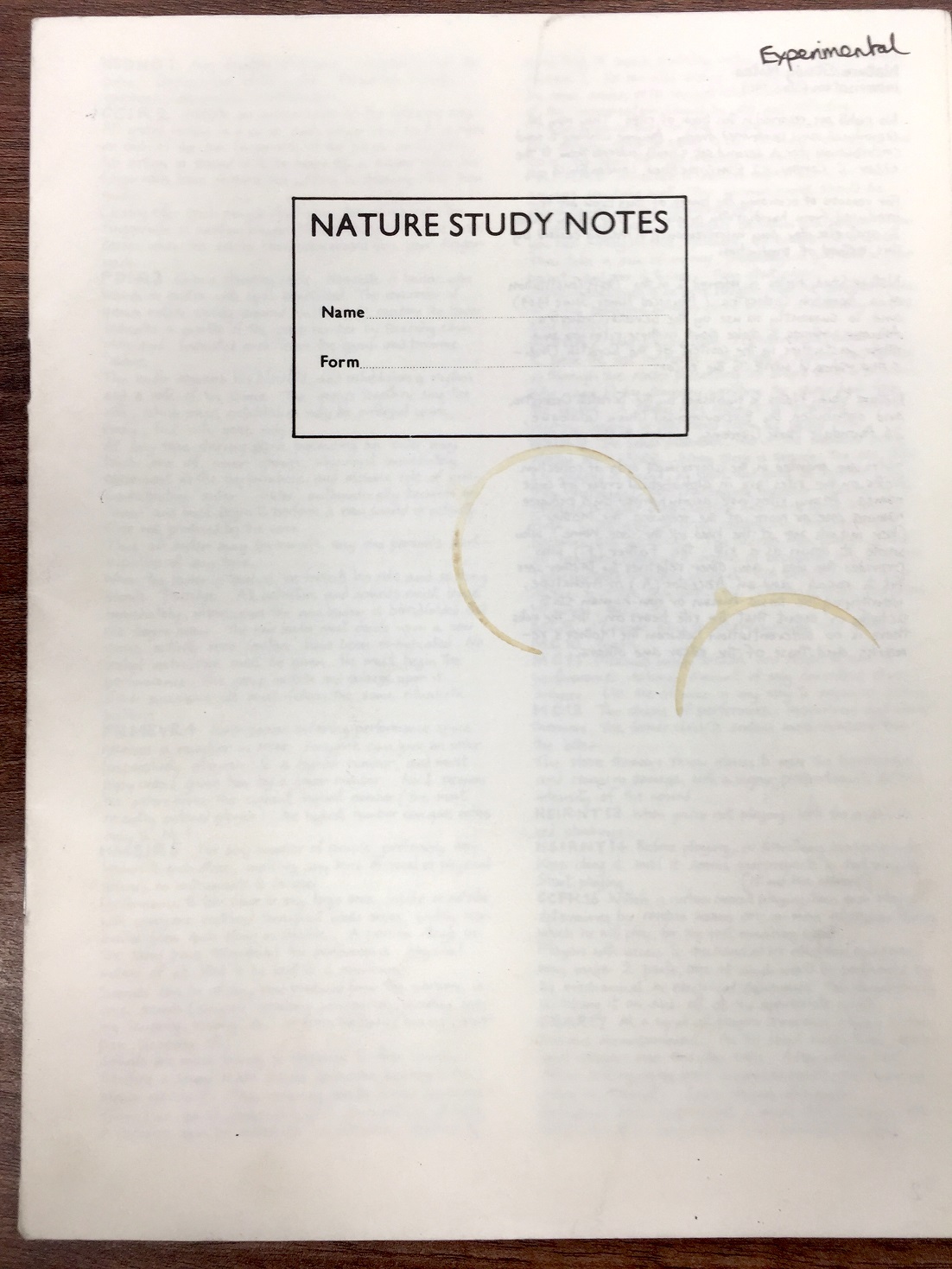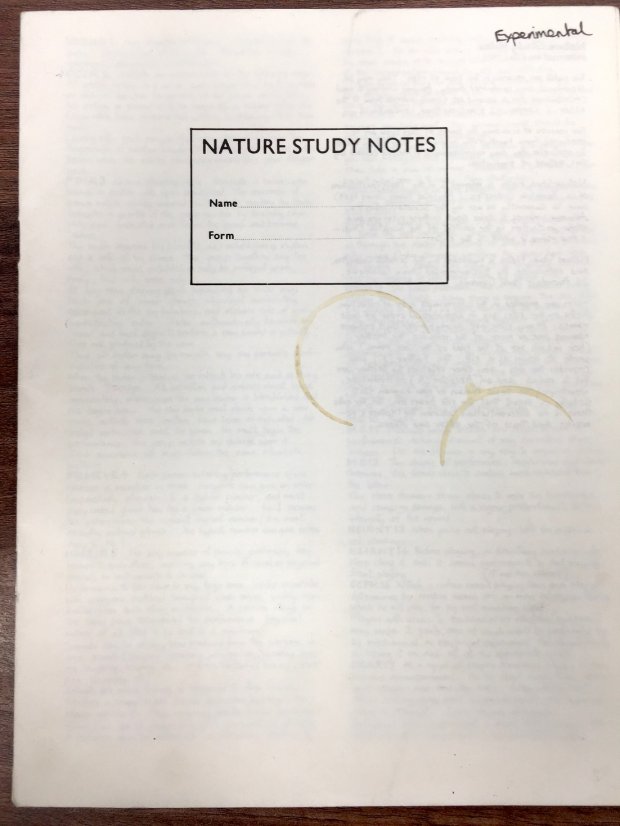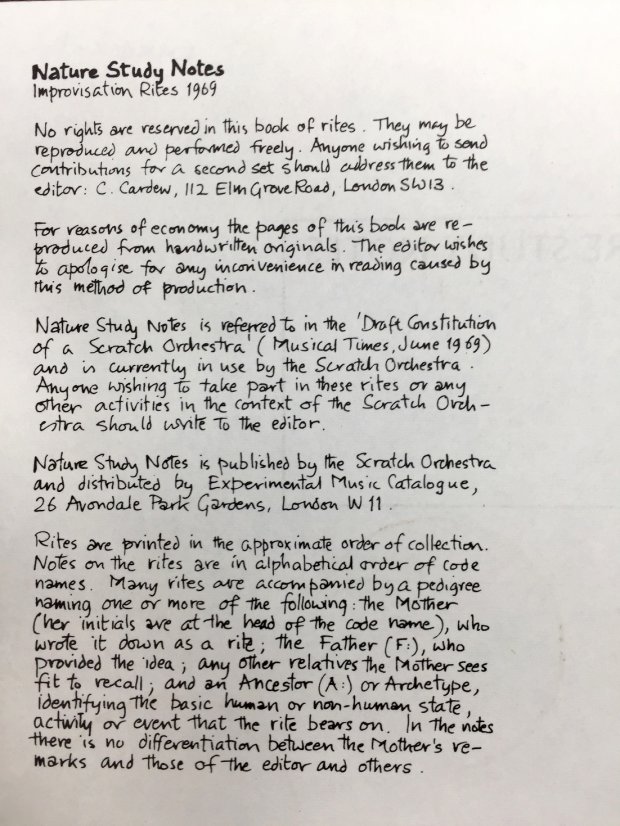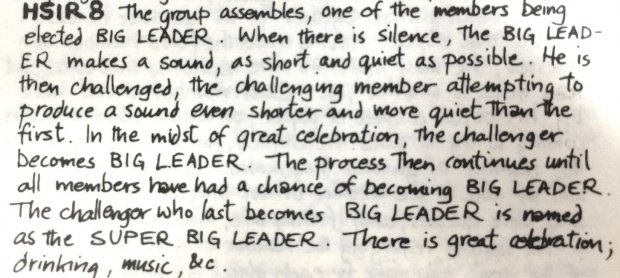
In the thrid of a four-part curatorial series, Amble Skuse find early examples of open source and accesible ideals.
For my next piece I’m looking through Nature Studies Notes which is a collection of improvisatory games and instructions. Although the power hierarchy exists (it is someone’s idea after all), the games have varying levels of power structures and social awareness.


Firstly, I love that coffee cup stain on the front. All old books should have one.
So, two things jump out at me straight away. We are experiencing Open Source music. In 1969. Open Source is a massive political discussion now, with ideas around ownership, collaboration, copyright, net neutrality, corporations amassing huge data banks. So to find this awareness in 1969 is super exciting to me. This is a group of people who want to share their ideas with anyone who wants them, regardless of their ability to pay. They don’t see their ideas as a commodity, but a valuable contribution to musical society.
Secondly, that second paragraph! To acknowledge visual difference, in the document. That there may be people for whom this format is not accessible. In 1969. Again, in terms of democracy and power, they are acknowledging that those with visual impairments and / or dyslexia are at a disadvantage. This is way before its time. Something which has now moved into mainstream consciousness in terms of accessible documents, sees its awakening here amongst the experimental music community.
So, let’s have a look inside and see if I can contain my excitement.
Howard Skempton’s BIG LEADER satirises popularity contests and macho challenges. In order to be the BIG LEADER you must be small and quiet. You can only challenge the BIG LEADER by being smaller and quieter.

Philip Dadson’s If you have something to give allows us to reflect upon capitalism, upon our need to do and our ability to accept help. Again, it’s a critique on macho culture, on the adverts which tell you that if you’re sick you should take this pill and just keep going! It’s an antidote to our workaholic culture which tells us “When the going gets tough, the tough gets going”. This has a particular resonance for me as a disabled person. In many ways, disabled people are demonised in society for failing to DO. We are valued on our contribution as long as that contribution is an economic one. This radical work allows you to consider if indeed you can give, and if not, you can receive. It’s OK to receive. It’s OK to not have anything to give right now.

